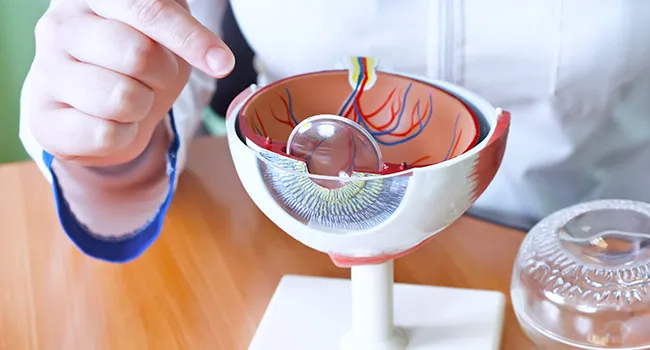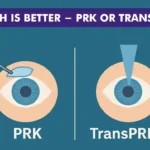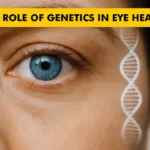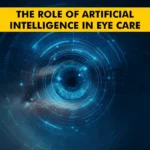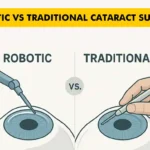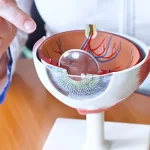From diagnosis to treatment: An insight into neuro-ophthalmology
Neuro-ophthalmology is an ophthalmic subspecialty that merges the fields of ophthalmology and neurology. This super speciality field deals with neurological problems associated with the eyes.
Likewise, neuro-ophthalmologists deal with the nervous system’s many complex diseases that affect vision, eye alignment, and many optic nerve disorders. They have a unique ability to diagnose and evaluate patients from medical, ophthalmic, and neurologic standpoints to treat neuro-ophthalmologic disorders.
Symptoms that indicate for neuro-ophthalmic disorders
There are many neuro-ophthalmic disorders that require immediate attention. If not treated timely, they might affect the optic nerve and cause optic nerve atrophy (irreversible damage to the optic nerve).
The optic nerve is responsible for transmitting visual information from the retina to the brain. It is also known as the second cranial nerve and is made up of over a million nerve fibres that send visual information to the brain via electrical impulses. Any damage caused to the optic nerve can severely affect colour vision, central, peripheral vision.
Signs and symptoms that indicate a neuro-ophthalmological issue includes:
- Visual hallucinations
- A sudden decrease in vision
- Double vision (diplopia)
- Squints
- Defects in visual fields
- Headaches
- Difficulty in seeing lights
- Colour vision impairment
- Pupillary abnormalities
Common diseases treated by neuro-ophthalmologists:
Several eye disorders require the immediate attention of a neuro-ophthalmologist, like:
- Optic Neuritis:
It is a condition in which the optic nerve gets swelled up and causes inflammation. It can happen due to some infection or nerve disease. It is a disease that often affects young adults in one eye. A person suffering from optic neuritis will face some challenges, like:
- A nagging eye pain
- Temporary reduction in vision that can vary from patient to patient
- Loss of colour perception
- Seeing flashing lights with eye movement.
These issues can be serious as it Jun lead to permanent vision loss and other severe medical disorders, like the risk of developing multiple sclerosis, and neuromyelitis optica. Therefore optic neuritis requires urgent medical attention.
- Papilloedema:
Papilloedema is swelling of the optic disc that results from increased intracranial pressure (ICP). Increased pressure causes nerves to swell accompanied with headaches. Papilloedema can lead to optic atrophy and blindness. Sometimes, papilledema can be a warning sign for a brain tumour or haemorrhage. At times, this swelling can’t be traced to a particular problem. Hence, the immediate attention of a neuro-ophthalmologist becomes a must in papilloedema.
- Diabetic Neuropathy:
High blood sugar can affect your nerves throughout your body. It can damage the optic nerve due to excessive blood sugar or diabetes. It starts affecting blood vessels in the retina. If not treated timely, then the blood supply to the retina begins getting cut-off, resulting in vision loss. Depending on the nerves it affects, diabetic neuropathy can be disabling for many. The symptoms for diabetic neuropathy can be issues with the digestive system, urinary tract, blood vessels and pain with numbness in legs and feet.
- Squints/strabismus:
Squint is a misalignment of the eyes. It is a condition in which both the eyes point in different directions. Paralytic strabismus happens due to paralysis of small muscles of the eye. This can limit ocular movement as well. Therefore, a consultation with a neuro-ophthalmologist becomes essential during the treatment for strabismus.
Preparing for neuro-ophthalmology evaluation
- Do get all the tests done as your neuro-ophthalmologist asks. Consult when you have reports of lab tests, detailed rep reports of MRI and CT scans with you.
- Before the appointment, you can also send your neuro-ophthalmologist all the reports on mail in advance. Carry the actual films with you when you are visiting the hospital or clinic.
- Your eyes might be dilated for specific tests. The effect of eye drops lasts for four to five hours, so arrange that someone else drives you back home. Do carry your sunglasses.
- Discuss with the physician and your neuro-ophthalmologist about your medical history, medicines you take, and your family history related to diseases, if any.
Neuro-ophthalmology diagnosis
Your neuro-ophthalmologic evaluation can last for a few hours as it is one of the most comprehensive eye examinations. You might go through a series of tests, including testing your peripheral vision (visual field test), a complete neurologic assessment for a detailed report of your sensation, and coordination.
You Jun need to go for the following tests as per the advice of your neuro-ophthalmologist:
- Assessment of ocular movement
- Neurological visual fields screening
- Evaluation of contrast sensitivity and colour vision
- CT scan, MRI and MR imaging studies
- Diplopia charting
Post the examinations; your neuro-ophthalmologist will discuss the next course of action. He/She will discuss the diagnosis, treatment, the need to do further testing, etc.
Centre for Sight provides comprehensive treatment with a personal touch for an array of eye ailments. Be it retinal issues, or any other eye disorders, we are always there to serve your eyes with the best possible eye care. Not only this, but we also have an excellent team of some of the best neuro-ophthalmologists to diagnose and treat neuro-ophthalmology disorders.
Article: A complete insight into neuro-ophthalmology | Centre for Sight
Author: CFS Editorial Team | Aug 5 2020 | UPDATED 02:00 IST
*The views expressed here are solely those of the author in his private capacity and do not in any way represent the views of Centre for Sight.
